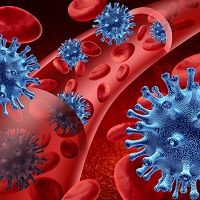Article
Common Human Practice Can Help Spread Infectious Diseases
Author(s):
While supplemental feeding of wildlife may seem beneficial for animals, a new study suggests that it has the potential to increase the spread of infectious diseases to humans.

While supplemental feeding of wildlife may seem beneficial for animals, a new study suggests that it has the potential to increase the spread of infectious diseases to humans.
Lead Author Daniel Becker, a doctoral student in the Odum School of Ecology, and colleagues reviewed 20 published studies on the subject in order to understand infection patterns in the environment. The researchers explained that supplemental feeding (ie, giving food to wildlife) is becoming more common and with that comes changes in ecology, including the spread of viruses and bacteria.
"We knew of studies of supplemental feeding showing both increases and decreases in parasitism and disease, but no one had synthesized them," Becker said in a news release. "We wanted to know if there was an overall net tendency, and we wanted to know what could explain the different responses."
The type of supplemental feeding can range from being intentional, like hanging a bird feeder or setting up a winter feeding station, to unintentional, such as animals getting into easily accessible garbage cans or landfills. Either way, it can result in changes to behavior and nutrition which ultimately leads to an impact on diseases in wildlife.
Published in Ecology Letters, the study identifies that since the food sources bring many animals together, it increases the risk of transmitting pathogens to other animals and even humans.
"For intentional feeding sources like bird feeders, we expect parasites like bacteria and viruses to increase, so spacing these resources apart can help reduce the high contact rates driving transmission," Becker said. "And cleaning feeders periodically can help limit the buildup of infectious stages in the environment that occurs when lots of animals become more sedentary."
The authors cited white-tailed deer and elks as being sources of increase pathogen exposure, spreading mycobacterium bovis and brucellaabortis respectively, due to higher contact rates.
Although nutritious foods can possibly help an animal’s immune function, the findings indicate that often times the food does not provide enough benefits to outweigh the risks involved. The food can even hinder the animal’s natural immune defenses.
"For a lot of people, feeding animals provides a crucial connection to nature, increases their appreciation of wildlife and presents opportunities for outreach and education," Co-Author Sonia Altizer, associate dean at Odum School and professor of ecology at the University of Georgia Athletic Association said. "We don't want to suggest that all feeding of wildlife should be avoided, but we do need to find ways to minimize the risks for human and wildlife health."


